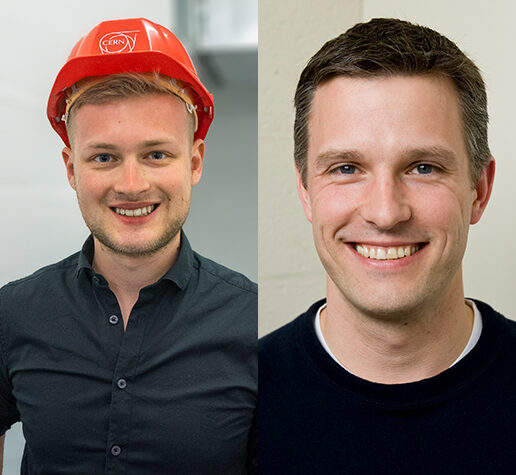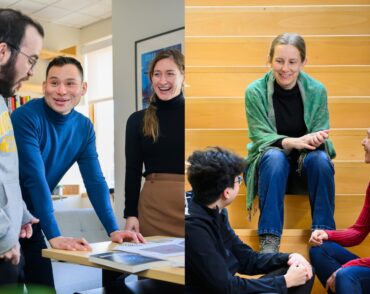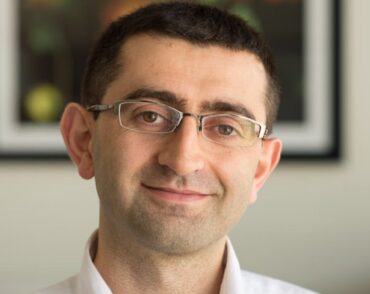
Two members of the Physics community are recognized by the Humboldt Foundation
Postdoctoral researcher Dr. Jonas Karthein was awarded the Feodor Lynen Research Fellowship of the Alexander von Humboldt Foundation, with support from Prof. Richard Milner and Prof. Ronald Fernando Garcia Ruiz. The aim of this fellowship is to promote scientific cooperation between international research institutions and early-career German scholars.
Dr. Karthein joined Garcia Ruiz’s Laboratory of Exotic Molecules and Atoms in January to lead the development of a novel ion trap for laser spectroscopy of stable and radioactive molecules. This setup will be used to test fundamental theories, nuclear interactions, and properties of nuclear matter. He also conducts experiments with radioactive isotopes at CERN and FRIB using ion traps and lasers. His research has potential impacts for quantum information and cancer therapy based on radioisotopes. He was also an MIT LEAPS lecturer this spring semester.
Dr. Karthein received his bachelor’s, master’s and PhD from Heidelberg University, while spending the majority of his time working at the ISOLTRAP mass spectrometer at CERN in Geneva. For his Summa Cum Laude dissertation, he was awarded the prestigious Wilhelm-Und-Else-Heraeus dissertation award. Watch a video about his work here and a recent talk about the novel trap-laser project here.
Physicist Markus Klute has been selected by the Karlsruhe Institute for Technology (KIT) to receive the 2022 Alexander von Humboldt Professorship.
Professor Klute and his team played a significant role in discovering the Higgs boson at CERN’s Large Hadron Collider (LHC) in 2012, playing a leading role in the Compact Muon Solenoid experiment (CMS). His later measurements added a deeper understanding of the Higgs’ properties, and he established the use of machine-learning techniques in high-energy physics.
As a Humboldt Professor, Klute will head the CMS project at the Institute of Experimental Particle Physics at the LHC, with the goal to help KIT enhance LHC research in order to achieve more precise measurements to continue the search for subatomic particles and to explain the origins of the universe. Involving 5,000 people from over 50 countries, the CMS experiment is one of the world’s largest international research projects.
Klute studied physics and mathematics at the University of Bonn, and spent his time as a doctoral student working on research at CERN and the Fermilab. After completing his doctorate in 2004, he was a research scientist at MIT, then a professor at the University of Göttingen. He returned to MIT in 2009 as an assistant professor, and has been a full professor since 2020.


